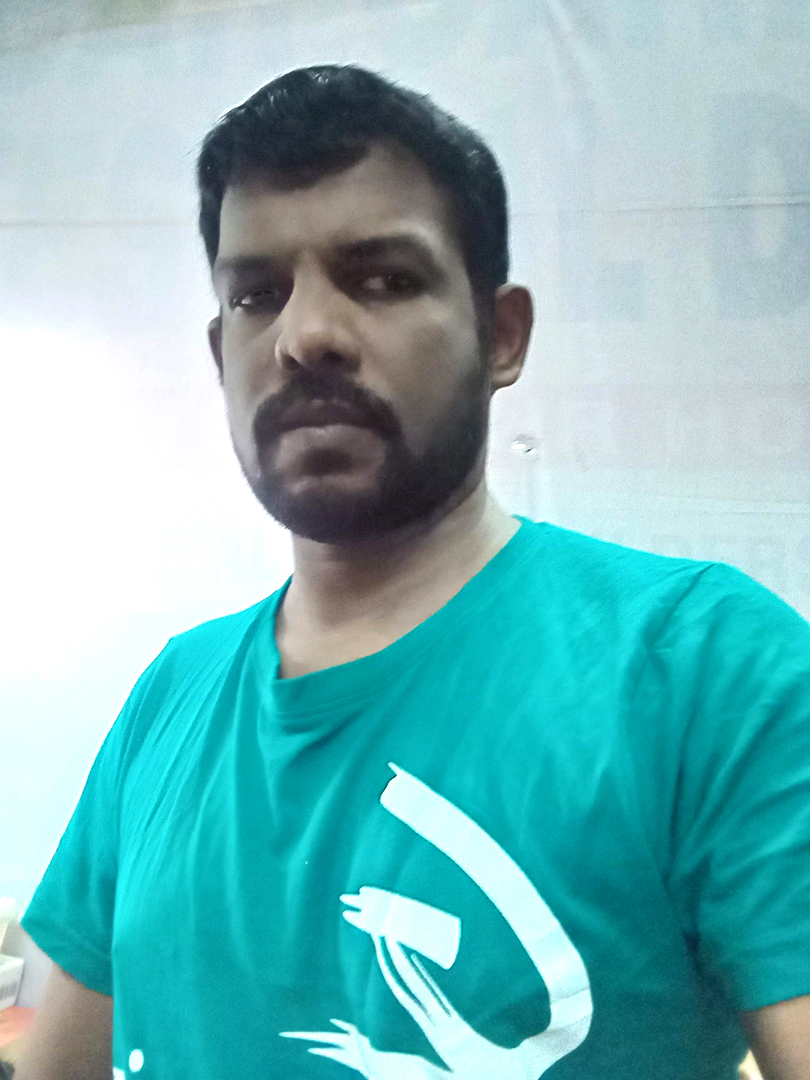
Photo credits: Jaya Bathuri
Bhaskaran Kumarasamy, an Eelam Tamil refugee and former member of the Liberation Tigers of Tamil Eelam (LTTE), faces threat of imminent deportation from Tamil Nadu to Sri Lanka as a court ruling in June put into question his status as a refugee in India.
Kumarasamy arrived in Tamil Nadu in 2004 and has been detained in more than three different refugee camps in the state, including the notorious Special Camp in Trichy Central Jail where he is currently held.
A ruling by the Madras High Court on June 23 said that Kumarasamy “should cease to be recognised as a refugee.” The court was hearing a plea by Kumarasamy that requested the court’s permission for him to visit the Swiss embassy in New Delhi, whence he was invited regarding his application for asylum in Switzerland.
The court not only denied Kumarasamy’s plea, but also compromised his refugee status citing his brief visit to Sri Lanka in 2014 for personal reasons.
Since India is not a signatory to the United Nations Convention Relating to the Status of Refugees, its actions towards refugees do not fall under the purview of international law, including the principle of non-refoulement which prohibits signatories from returning a refugee to a territory where their safety may be imperilled.
The June ruling by the High Court contradicts an order by the same body given in August 2020, which stayed Kumarasamy’s deportation on the grounds that returning to Sri Lanka would pose a “credible threat” to his life.
In addition to staying Kumarasamy’s deportation, the August 2020 judgement also observed that “For the past 13 years, he is in India. Moreover … his family members viz., father, brother, brother’s wife and daughter were murdered by the Srilankan Army.”
Earlier this year, the British Upper Tribunal had ruled in favour of two Eelam Tamil asylum seekers recognising the "authoritarian and paranoid" Sri Lankan government monitors the activities of the Tamils diaspora. If an asylum seeker was returned to the country, they risk being subjected to torture, which is "endemic" in Sri Lanka. Since Gotabaya Rajapaksa came to power in late 2019, at least 5 cases have been documented abroad of abduction, torture and sexual violence of Tamils. The ITJP notes, "this likely represents the tip of the iceberg".
Kumarasamy continues to be detained in the Special Camp despite the fact that he has not been convicted of committing any offence. He has been repeatedly facing intimidation at the hands of Q Branch of the Tamil Nadu Police Criminal Investigation Department (CID) whose officials threatened Kumarasamy with deportation on several occasions.
Loganathan, sub-inspector in the Q Branch, can be heard in a recording telling Kumarasamy that his tickets to Sri Lanka were already booked and that he would leave soon.
Before the High Court stayed Kumarasamy’s deportation in 2020, he had received an order of deportation signed by the Q Branch Superintendent of Police (SP) and the Sri Lankan High Commissioner in 2019, raising questions about a possible collusion between the two authorities.
Kumarasamy’s extended family, who live in the Northern Province of Sri Lanka, were also investigated by Sri Lankan authorities, presaging what might happen to him if he is deported to the island.
The Indian government has continuously been reluctant to grant citizenship to Eelam Tamil refugees. The controversial Citizenship (Amendment) Act of 2019 (CAA), which created a pathway to citizenship from non-Muslim immigrants from Afghanistan, Pakistan and Bangladesh, left out Eelam Tamils.
They are considered to be “illegal migrants” ineligible for citizenship. The central government recently told the Madras High Court that, “We can’t provide citizenship for Sri Lankan refugees who entered India illegally and don’t possess any documents,” and that the centre cannot make decisions on an “emotional basis.”
Read more here in The Caravan.

